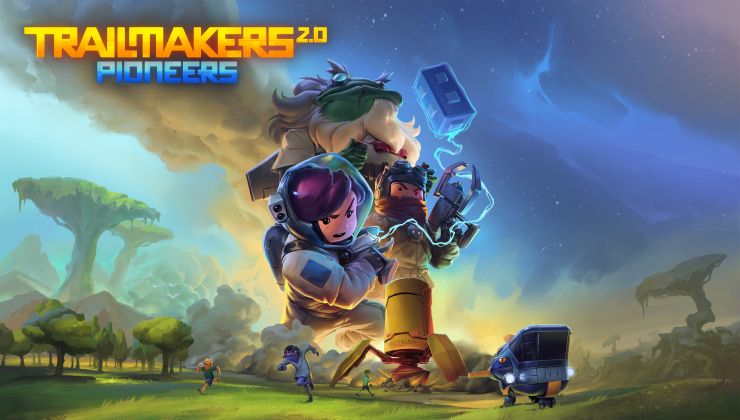The FTC announced that Epic Games has agreed to pay $520 million, due to "violating children's privacy laws" and "tricking users into making unwanted charges".
Quite a large fine overall split between:
- $275 million penalty for violating children's privacy law.
- $245 million in refunds for tricking users into making unwanted charges.
Recently, Epic Games made a change to their account system for younger players (that caused the Heroic Games problems) and changed a bunch of privacy settings which they did as a result of this.
Some record-breaking fines there, as the FTC said in the announcement. The $275 million is a traditional fine, but the $245 million appears to be going towards refunds to customers.
From the press release:
"As our complaints note, Epic used privacy-invasive default settings and deceptive interfaces that tricked Fortnite users, including teenagers and children," said FTC Chair Lina M. Khan. "Protecting the public, and especially children, from online privacy invasions and dark patterns is a top priority for the Commission, and these enforcement actions make clear to businesses that the FTC is cracking down on these unlawful practices.”
“The Justice Department takes very seriously its mission to protect consumers’ data privacy rights,” said Associate Attorney General Vanita Gupta. “This proposed order sends a message to all online providers that collecting children’s personal information without parental consent will not be tolerated.”
Epic also released their own statement here.
In other news: Epic Games are killing off a bunch of classics like Unreal Tournament.
But people were told and warned many times in the past, but continue to do so thus at this point they cannot complain about it
[...]The video game industry is a place of fast-moving innovation, where player expectations are high and new ideas are paramount. Statutes written decades ago don’t specify how gaming ecosystems should operate. The laws have not changed, but their application has evolved and long-standing industry practices are no longer enough. We accepted this agreement because we want Epic to be at the forefront of consumer protection and provide the best experience for our players.It strikes me as a little incongruous that a company that took three years to add a shopping cart to their game store—a pretty universal feature in ecommerce—could make claims that the specific failings cited by the FTC and carefully worded in their statement were because "everyone else was doing it!"
[...]
Saving payment information by default is a common way to streamline the checkout process, so players do not have to re-enter their payment method every time they make a purchase. We’ve agreed with the FTC to change this practice, and we now offer an explicit yes or no choice to save payment information.
[...]
If a cardholder sees an unauthorized transaction on their statement, they may report it to their bank to have it reversed. When that chargeback is initiated, it is common industry practice to disable the associated account as a fraud prevention measure. We’ve updated our chargeback policy to account for non-fraud related scenarios and will only disable accounts when fraud indicators are present. We have restored thousands of accounts that were banned due to reported chargebacks under our previous policy.
Oh well, let us just hope that other developers don't start jumping off bridges, lest Epic follow suit. It wouldn't be their fault then either.
In Fortnite, you don't buy a box for 1.99 in your own currency, but a llama for an ingame currency. As a result, children in particular lose track very quickly. And that is also the only reason for these ingame currencies. They are otherwise without any function.
Last edited by 1xok on 19 Dec 2022 at 3:52 pm UTC
So, no more free games in 2023? :PAnd then lose 50% of their user base, who only enter to grab the free games, the rest are only for Fortnite.
Let's not forget that, in 2019, Epic were [caught](https://metacouncil.com/threads/epic-game-store-spyware-tracking-and-you.766/) stealing our Steam data upon launch and tracking us, presumably for Daddy Tencent.Maybe, although I have plenty of faith in Epic's ability to be privacy-invading grifters all by themselves.
I do like eggs tho.
I'm somehow less frustrated they still don't officially support linux. I'm not naïve though, it's not just them, bad practices can be anywhere in this industry, but Tim is as brilliant as he can be a piece of shite.
Last edited by a0kami on 19 Dec 2022 at 10:22 pm UTC
One of many reasons why you shouldn't use Epic Store, nor trust their EAC or EOS.I know what you mean, but really it's important to be clear: yes they can and should complain, even if previously aware of the issues, because...
But people were told and warned many times in the past, but continue to do so thus at this point they cannot complain about it
1) Epic broke laws to do it
2) Epic lied about what was being done
3) It's not trivial to detect this sort of thing on your own
4) The crushing majority of people echoing complaints about Epic's disregard to privacy fail to link the complaint to a credible source, so it looks like the claim is crazy unreal when in fact Epic actually did something crazy horrible in real life
5) Most people don't delve into privacy issues enough to actually understand the extent nor the damage damage, even after "being told" it happens... It's not necessarily because they would be OK with it if they actually grasped the full scope of it, but often just because they have enough other serious things on their mind... IMHO this is especially true when talking about issues embeded in their leisure activities
That's why strong enforcement by a specialized taskforce is indispensible and can yield such surprising results when it finally materializes.
Last edited by Marlock on 20 Dec 2022 at 6:27 pm UTC











 How to set, change and reset your SteamOS / Steam Deck desktop sudo password
How to set, change and reset your SteamOS / Steam Deck desktop sudo password How to set up Decky Loader on Steam Deck / SteamOS for easy plugins
How to set up Decky Loader on Steam Deck / SteamOS for easy plugins
See more from me